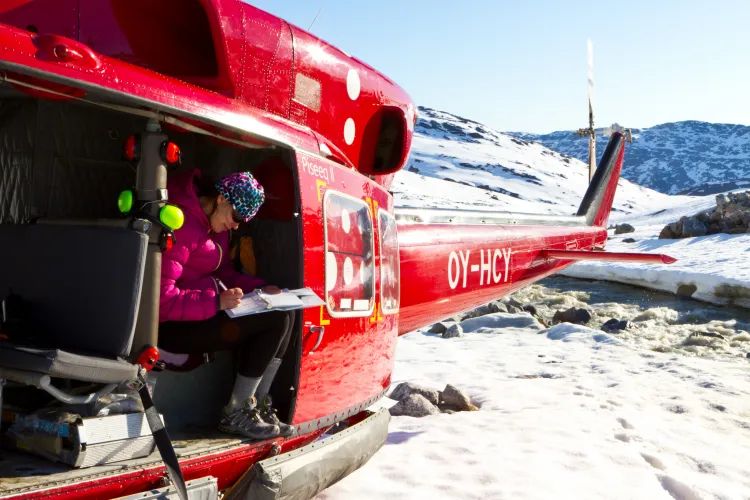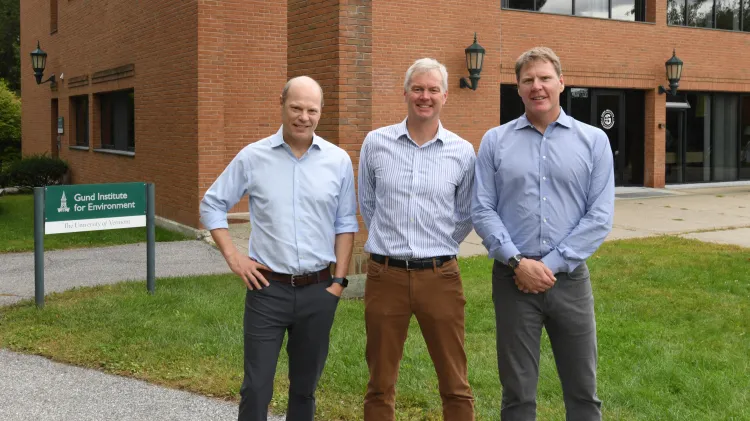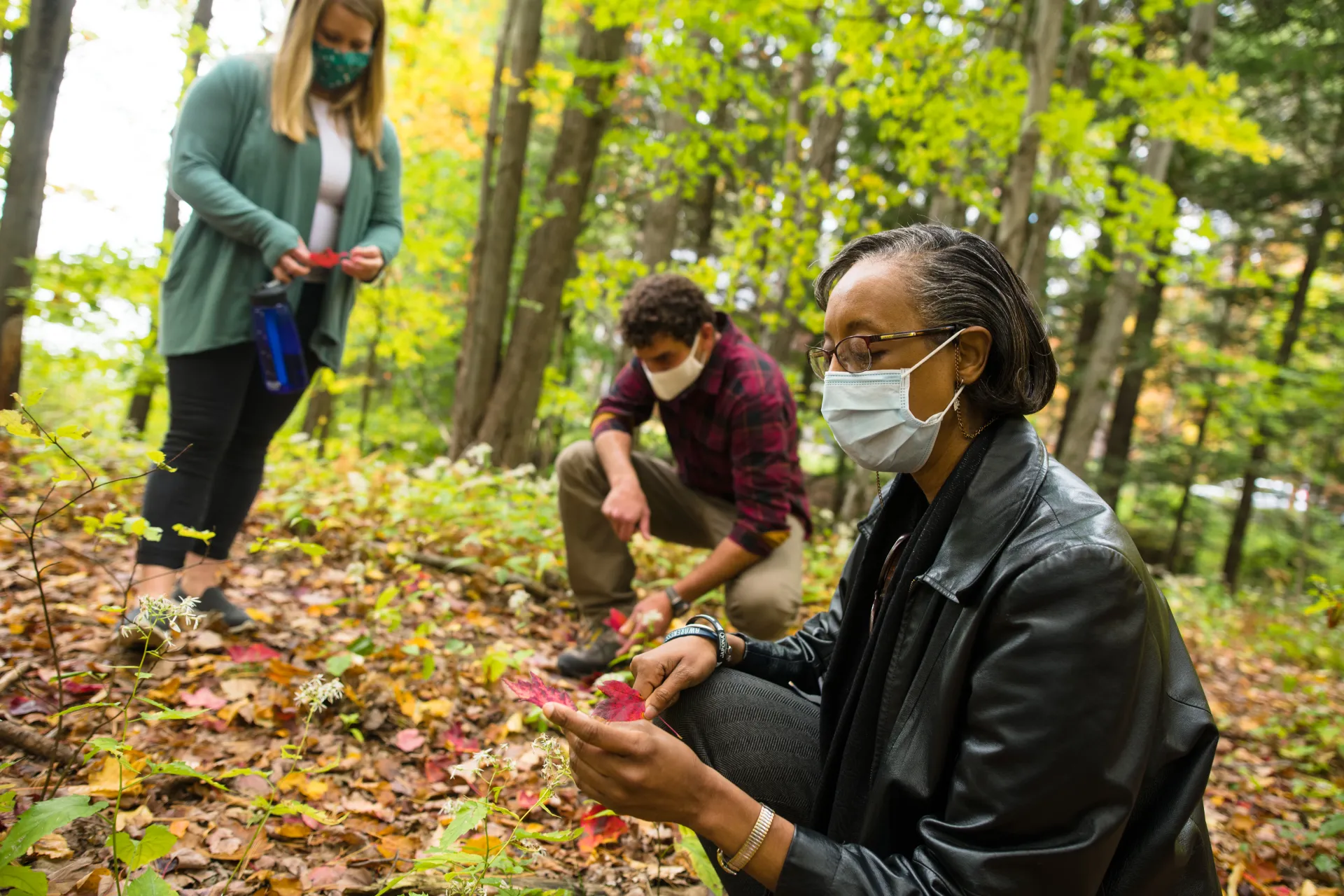When the Gund family—UVM parents Gordon HON’95 and the late Llura HON’95 and their sons Grant ’91 and Zack ’93—made a $6 million gift in 2017 to launch the Gund Institute for Environment, they challenged other donors to invest an additional $8 million in the Institute, with the promise of another $4 million in matching funds from the family.
Rising to the “Gund Family Challenge,” more than 260 donors and businesses, including 184 new UVM donors, contributed a total of $8.2 million to meet that goal and significantly expand the reach of the Gund Institute. Donors earmarked $6.9 million for research and graduate student support and $1.3 million for land grant outreach to government, industry, and society.
“A heartfelt thank you to the Gund family and to all of these generous friends, whose passionate interest is a testament to the quality of research taking place in the Gund Institute and its critical importance to the world,” said UVM President Suresh Garimella. “With the completion of the Gund Family Challenge, we continue to build upon the University of Vermont’s reputation as a premier research institution with a distinct commitment to fostering healthy societies and a healthy environment.”
“These funds are absolutely critical for helping the Gund Institute to achieve real-world impact,” said Gund Institute Director Taylor Ricketts. “It enables scientists and students to accelerate research that inspires action on the most critical environmental issues we face, from climate change and sustainable farming to water security andenvironmental justice. That’s why exceeding the Gund Family Challenge—thanks to a groundswell of committed donors—is a significant milestone for us.”
World class research, world changing impact
Since its launch in 2017, the Gund Institute for Environment has grown into a global network of 250 researchers and leaders. It has supported and trained over 150 outstanding young researchers from around the world to become environmental leaders of tomorrow. The Institute has also connected research to the decisions and policies of governments, companies, and non-profits worldwide. And donor funds have helped established several enduring initiatives, from the Vermont Climate Assessment, which is guiding state action on climate change, to the Eric Zencey Prize for Ecological Economics, which recognizes outstanding popular writing on the connections between nature, economics, and society.
The Institute has generated over $38 million in external support and launched seed grants that generated a 29:1 return in external funding. It has catalyzed more than 80 research projects targeting environmental issues and forged 30 new partnerships with companies like Johnson & Johnson, Microsoft, Ben & Jerry’s, and more. Most importantly, Gund research has inspired real-world action, including urgent research on Greenland’s ice sheets and projected climate impacts, and one of the largest studies of U.S. food insecurity during COVID-19, which provoked national and state responses.

“The collaborative focus of the Institute, bringing together people from different disciplines to address our generation’s largest problems, highlights the many strengths of the UVM community,” said Zack Gund. “It is thrilling to see our original vision become reality, and to see research impacting real-world environmental challenges. It is our family’s hope that the Institute will continue to strengthen UVM’s leadership in the field of environment and sustainability.”
Powered by partnerships
Ricketts says his goal now is real-world impact. To that end, the Institute will be launching a new initiative this year, the Gund Global Impact Fund, to turn sustainability ideas from the academy into real-world solutions. The fund will allow the Institute to build more enduring partnerships with influential organizations, expand its media reach, and convene scientists and decision-makers in larger forums. The Global Impact Fund will ensure that the remarkable research supported by the Gund Institute has the maximum possible impact on the wider world.
“Given the urgency of global issues, our biggest problem is pace,” said Ricketts. “We will therefore focus on accelerating the discovery of science-based solutions and the swiftness with which we bring them to bear on real-world problems. That means finding and supporting the most promising ideas and investing in strategic partnerships to put these ideas into action. By doing so, we seek to distinguish UVM as one of the country’s most rewarding, productive, and exciting places to investigate complex environmental issues and produce meaningful change.”

